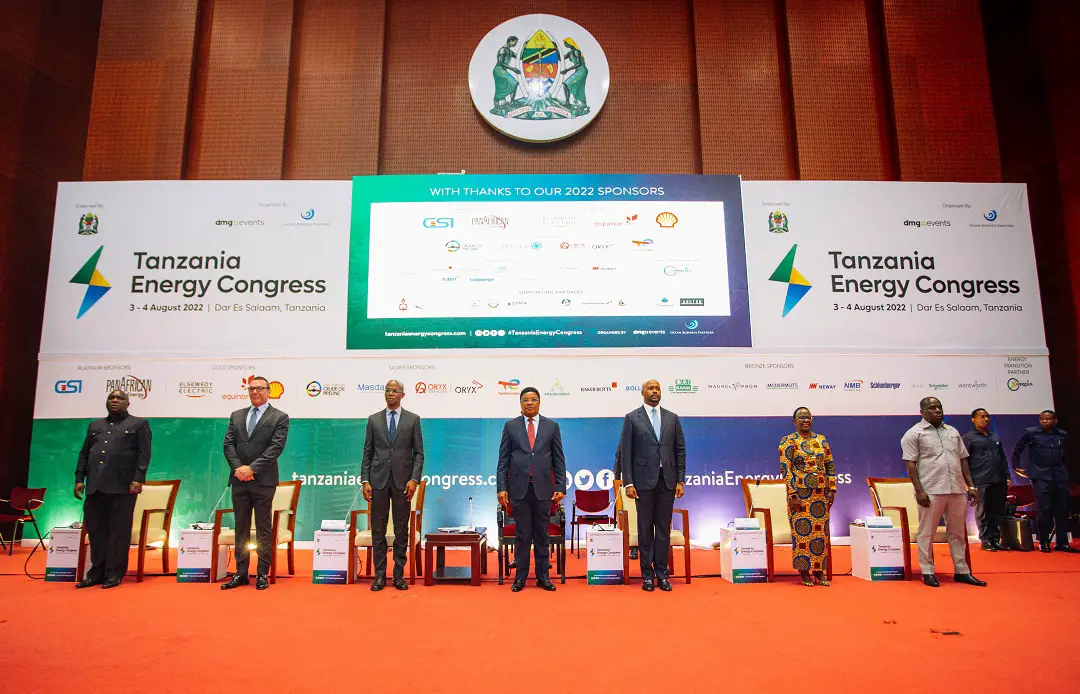- The inclusion of the Oman JSRS eMarketplace (JeM) in this year’s Tanzania Energy Congress signals strengthening economic ties between Oman and Tanzania-Zanzibar.
- Oman, with its vast expertise in oil and gas, finds a promising partner in mainland Tanzania and the Zanzibar Island.
- By showcasing suppliers certified by Oman’s Ministry of Energy & Minerals’ Joint Supplier Registration System, digital platform JeM offers a golden opportunity for Tanzanian companies to interact with their Omani counterparts.
In the heart of East Africa, a significant event is unfolding that promises to reshape the energy landscape of the region. The 2023 Tanzania Energy Congress, scheduled for September 20-21 in Dar Es Salaam, is not just another conference. It’s a testament to the growing synergy between Tanzania-Zanzibar and Oman, two nations with a shared vision for a sustainable energy future.
A Meeting of Minds and Markets
The inclusion of the Oman JSRS eMarketplace (JeM) in this year’s Tanzania Energy Congress is a clear indication of the strengthening economic ties between Oman and Tanzania-Zanzibar. But what does this collaboration truly signify? At its core, it’s about mutual growth and sustainable development in the energy sectors, particularly oil, gas, LNG, and emerging new energies.
Oman, with its vast expertise in oil and gas, finds a promising partner in mainland Tanzania and of course its neighboring Island Zanzibar, both nations on the cusp of an energy revolution. With abundant natural resources and a strategic geographic location, Tanzania and Zanzibar are poised to drive economic prosperity while championing environmental sustainability.
The JeM, a unique digital platform, is set to play a pivotal role in this partnership. By showcasing suppliers certified by Oman’s Ministry of Energy & Minerals’ Joint Supplier Registration System (JSRS), the JeM offers a golden opportunity for Tanzanian companies to interact with their Omani counterparts. This interaction is further enhanced by the JeM Mobile App, ensuring seamless connectivity between Congress delegates and Oman’s energy sector stakeholders.
Towards a Greener Tomorrow
While the collaboration underscores the potential of the oil and gas sectors, it doesn’t stop there. Clean energy, especially LNG, is a significant focal point. Oman’s experience in LNG production can significantly aid Tanzania-Zanzibar in establishing their LNG facilities, ensuring economic growth with reduced carbon emissions.
Moreover, the partnership is keen on driving innovation in new energy technologies. The emphasis on research and development in renewable energy sources, such as solar, wind, and geothermal power, aligns perfectly with the goal of a greener and more resilient economy. Such efforts are not only expected to attract global investors but also to bolster energy security for both nations.
Beyond the economic implications, this partnership promises cultural exchange and tourism opportunities. As Mr. Suleyman Al Harthy, ICV Manager at Business Gateways International, points out, the potential for sustainable opportunities that benefit future generations is immense.
The Congress will also shed light on key updates in Tanzania’s energy sector, including the Lindi LNG megaproject, EACOP pipeline developments, and various renewable energy proposals. These discussions aim to invite international investors to contribute to Tanzania’s sustainable energy economy.
In nutshell, the 2023 Tanzania Energy Congress is more than an event; it’s a beacon of hope for a sustainable energy future. As Tanzania-Zanzibar and Oman come together, they not only strengthen their bilateral ties but also set a precedent for other nations to follow. The world will be watching closely as these two nations pioneer a path towards a brighter, greener tomorrow.

Tanzania’s Natural Resource Wealth
Tanzania, often recognized for its iconic wildlife and pristine beaches, is also a treasure trove of untapped natural resources, especially in the realm of oil and gas. The country boasts significant offshore and onshore gas reserves, which have recently become a focal point of its industrialization agenda. The discovery of these reserves in the deep-water offshore region of Tanzania has positioned the country as a potential key player in the global energy market.
Recent explorations have unveiled approximately 57 trillion cubic feet (tcf) of natural gas, positioning Tanzania as one of the leading countries in East Africa in terms of energy resources.
These coastal gas finds not only promise to boost the nation’s energy security but also offer opportunities for export, attracting international investors and strengthening Tanzania’s foothold in the global energy market. As the country continues to explore and harness these reserves, the future looks promising for both its energy sector and its economy at large.
The vast natural gas fields, such as those in the Ruvuma and Mafia Deep Offshore basins, hold promise not just for Tanzania but for the entire East African region. These discoveries have sparked interest from global energy giants, eager to invest and collaborate with Tanzanian entities.
As the nation harnesses these resources, it stands at the cusp of an economic transformation, with the potential to propel its status on the global energy stage. The judicious utilization of these resources could pave the way for sustainable development, energy security, and a brighter future for its citizens.











